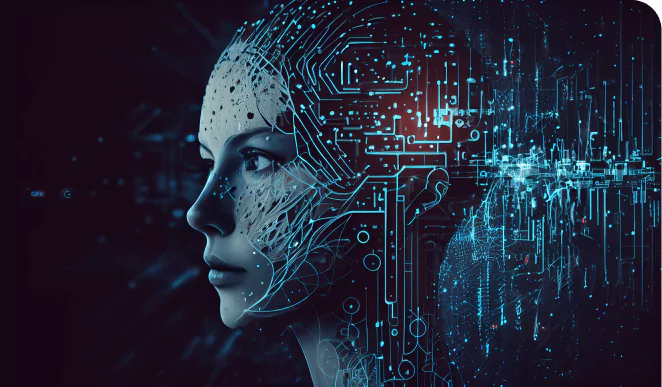Top 10 Benefits of Using Adaptive Artificial Intelligence Development Solutions
Discover the top 10 benefits of adaptive AI development solutions, from enhanced efficiency to smarter decision-making and scalable innovation.
In today’s fast-paced digital era, businesses are constantly seeking smarter, more efficient ways to innovate, optimize, and scale. Enter Adaptive Artificial Intelligence (AI) Development Solutions—a groundbreaking shift from traditional static AI to intelligent systems that can learn and evolve in real time. These adaptive systems respond to changing data patterns, user behavior, and market conditions, making them invaluable in a variety of sectors.

From enhancing customer experiences to streamlining operations, adaptive AI is not just a buzzword—it’s a game-changer. Below, we explore the top 10 benefits of using adaptive AI development solutions and why organizations should consider adopting them.
1. Real-Time Decision Making
Adaptive AI systems are designed to analyze data as it’s generated, allowing them to make immediate, data-driven decisions. This is critical in industries like finance, healthcare, and logistics, where split-second decisions can have massive implications. Unlike static models, adaptive AI continues to refine its decision-making process based on new data inputs.
2. Continuous Learning and Improvement
Traditional AI models often become obsolete as new data emerges. Adaptive AI, however, is built with self-learning mechanisms. It refines algorithms over time, learns from mistakes, and adjusts without human intervention. This ensures the system remains relevant and accurate, reducing the need for constant manual updates.
3. Personalized Customer Experiences
In sectors like e-commerce, entertainment, and digital marketing, personalization is key. Adaptive AI tailors recommendations, interfaces, and communications based on individual user behavior. The result? Improved user engagement, higher conversion rates, and stronger brand loyalty.
4. Operational Efficiency
Adaptive AI streamlines business operations by identifying inefficiencies, predicting bottlenecks, and automating repetitive tasks. This not only speeds up workflows but also allows human employees to focus on more strategic, creative tasks. For instance, in supply chain management, adaptive AI can dynamically reroute logistics in real time based on traffic, weather, or inventory changes.
5. Enhanced Cybersecurity
Cyber threats evolve constantly, making static defense mechanisms ineffective over time. Adaptive AI can detect anomalies, learn from past security incidents, and predict future threats. This proactive approach enables organizations to stay ahead of malicious actors, reducing risks and potential breaches.
6. Scalability Across Industries
From healthcare diagnostics to autonomous vehicles, adaptive AI is highly scalable. Its flexible framework allows businesses of all sizes to implement and expand AI capabilities as needed. Whether it’s analyzing millions of medical records or optimizing energy usage in smart buildings, adaptive AI fits the mold.
7. Improved Forecasting and Predictive Analytics
By continuously analyzing real-time and historical data, adaptive AI enhances forecasting models in fields like finance, retail, and agriculture. Businesses can anticipate market demands, consumer trends, and potential disruptions more accurately, leading to better planning and resource allocation.
8. Cost Reduction
Though initial implementation can require investment, adaptive AI ultimately reduces costs by automating tasks, minimizing errors, and optimizing resource use. It can also reduce downtime in manufacturing or IT infrastructure by predicting and preventing failures before they occur.
9. Better Human-AI Collaboration
Adaptive AI solutions are designed not to replace humans but to work alongside them. They adapt to user preferences, learning how individual employees interact with systems and suggesting ways to improve productivity. This synergy leads to more intuitive workflows and a more empowered workforce.
10. Competitive Advantage
In highly competitive markets, adaptability equals survival. Businesses leveraging adaptive AI can respond faster to changes in customer behavior, market dynamics, or regulatory requirements. This agility allows them to outpace competitors still relying on static or outdated technologies.
Conclusion
The integration of Adaptive Artificial Intelligence Development Solutions is transforming how modern enterprises operate. These systems bring unparalleled flexibility, intelligence, and efficiency across a range of applications—from real-time decision-making to hyper-personalized customer experiences. As industries continue to embrace digital transformation, those that invest in adaptive AI will be better equipped to navigate uncertainty, innovate rapidly, and maintain a competitive edge.
Incorporating Adaptive Artificial Intelligence Development Solutions into your business strategy isn’t just a technological upgrade—it’s a strategic imperative for long-term growth and resilience.